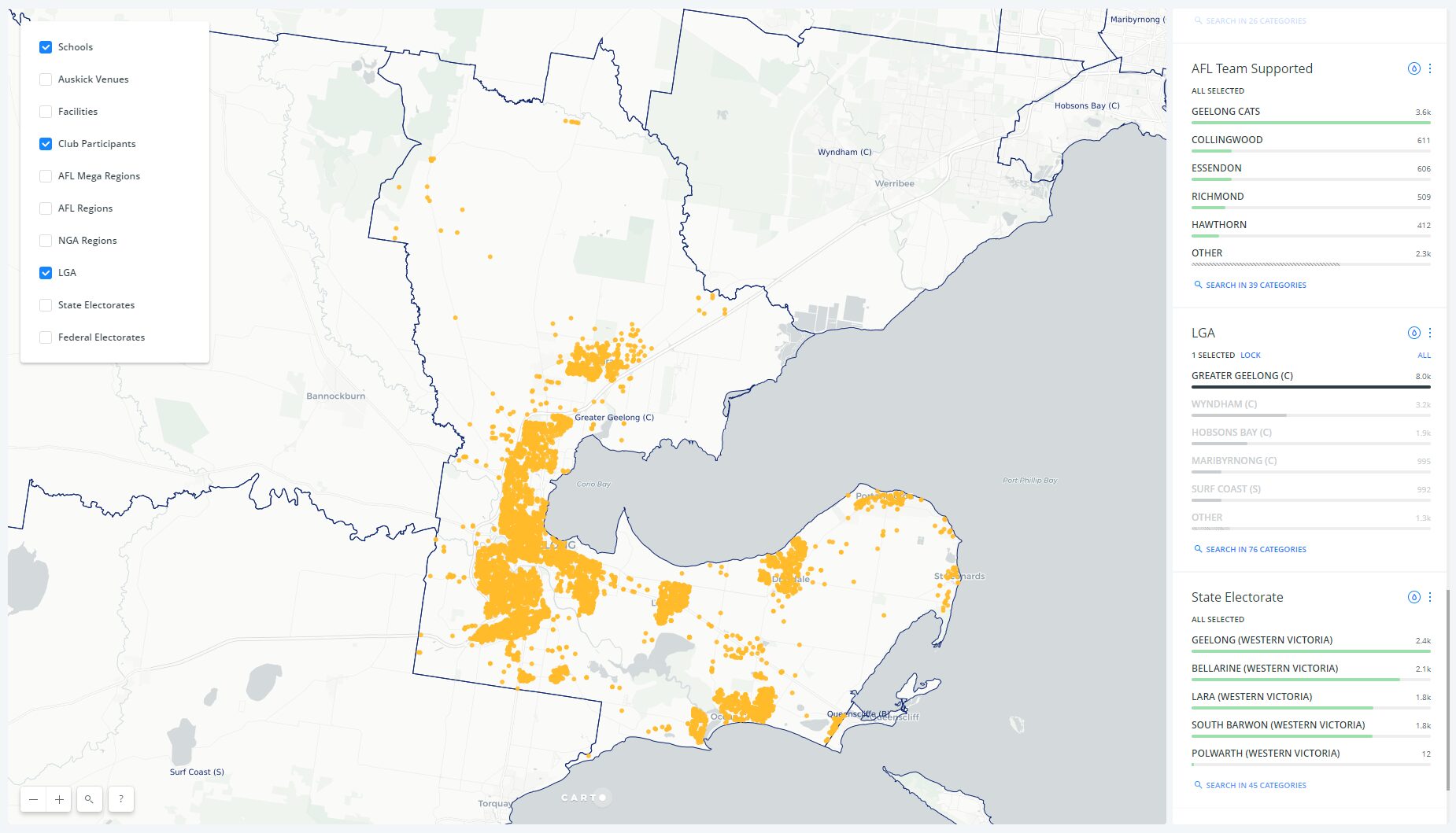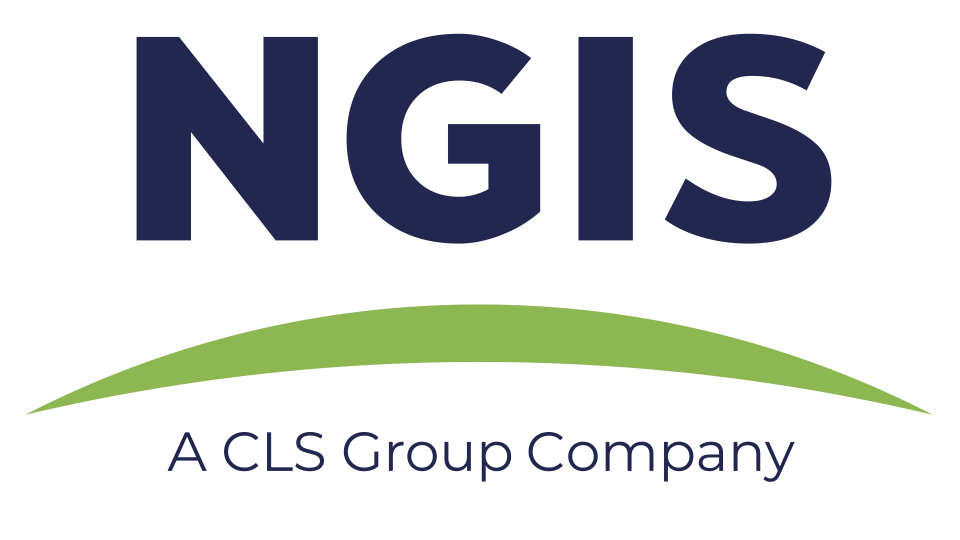Using carto to display data: National planning with local context
Growing the sport
The Australian Football League’s (AFL) Game Development Department has a focus on community facilities around Australia working with more than 2,500 community clubs. The Game Development Department aims to grow participation in the game and work with a variety of stakeholders including local and state governments and state football bodies to make expansion possible.
Throughout the country the AFL aims for around 3-4 percent growth in community engagement each year. Ensuring facilities are right in each area is an important aspect in attracting new players and retaining the current 400,000 that play around Australia.
Organisational effectiveness is important to ensure resources go to the right places. In each region, clubs and leagues make requests to the state and then to the national body for funding and the AFL must assess each application based on its merits. Local region managers are also required to make their case to local councils to obtain investment.
NGIS helped the AFL develop a mapping capability based on CARTO that allows them to communicate with each local authority using relevant and up to date data.
A localised approach needed
UCommunicating the status of a region’s participation gives people on the ground the right starting information so they can take the right actions to improve participation.
In the world of data driven decision making, the AFL needed a way to communicate quickly to local and state governments about their local needs. Communicating with local authorities using a standardised report that wasn’t tailored to a region made it more difficult to convey the AFL’s message, AFL National Venues and Communlty Facilities Manager, Shayne Ward said.
When decision makers in each locale were required to make sense of the standard report, it made it difficult for them to understand clearly what the needs in that area were.

“Mapping allows people to get a local look and see what it’s like on the ground. We want to accelerate growth – there are strong points and weak points in Australia and when you have local information you can see why.”
Shayne Ward, National Venues and Community Facilities Manager, AFL
A single communications canvas
Using the location intelligence platform CARTO, NGIS built a solution that makes localised snapshotting of their data easy. CARTO performs analysis and prepares reports for the AFL.
NGIS Principal Consultant Jack Green worked with the AFL to structure their player and facility data and overlay it with demographic information from the Census to inform each locality where they had good market penetration. The map also shows the journeys of players from where they live to their club, showing if they pass other clubs on their way.
Shayne Ward said Jack’s knowledge had been key to implementing the new technology. “Jack knew what the platform could do and could explain how it worked – that was important at the beginning to get budget and trust.“


Better advocacy around Australia
Shayne Ward said the new system was giving them tailored information with a quick turnaround.
“Previously we had one standard report, not a tailored document. Now each regional manager has a log in. They can see focussed regional information rather than a policy document. Previously we needed lots of adaption on the run needed by regional manager. “
He said maps are giving people a new way of looking at player and facility data.
“Mapping allows people to get a local look and see what it’s like on the ground. We want to accelerate growth – there are strong points and weak points in Australia and when you have local information you can see why.”
The response has not only been excellent at head office, but has also been effective with region managers around the country. Presentations to audiences using CARTO shows the data confidently and gives locals the chance to assess it with their local knowledge.
“The overwhelming feedback from people on the ground is that it helps them advocate their position better.”
“Acceptance of the data has been a great outcome – the fact it’s on a map and seemingly live as real people and dots rather than a flat excel spreadsheet is powerful.”

